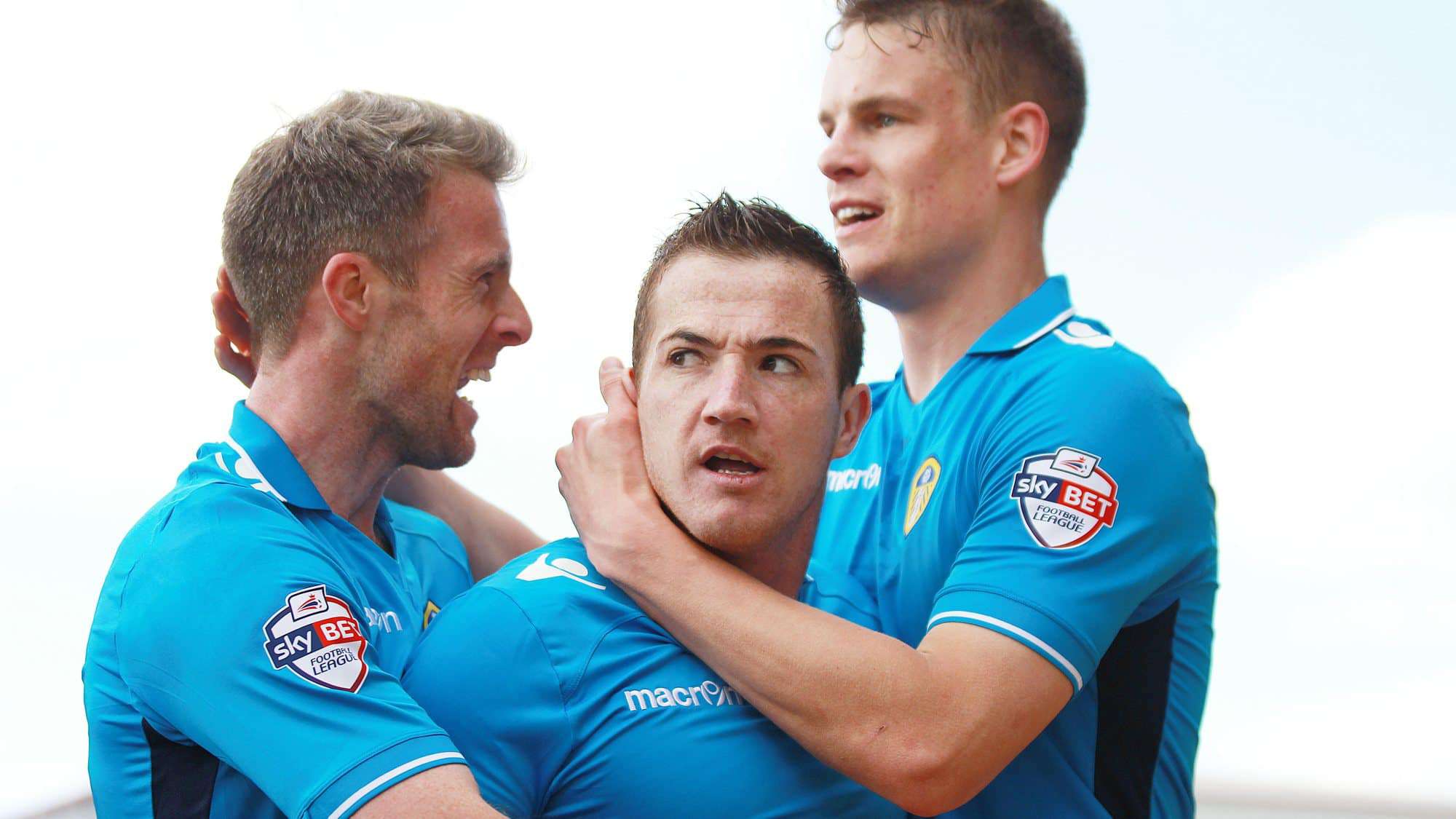Limited Time Discount! Shop NOW!

Ross McCormack had a knack for articulating the collective mood at Leeds United. Sometimes things were going well and we were feeling jovial, laughing at Ross calling a Twitter gobshite ‘triangle head’. Other times felt more visceral, checking Neil Warnock was getting the message from the terraces by yelling “fuck off” at Colin, celebrating the last goal of his godforsaken time as manager.

Towards the end of his four years at Leeds, McCormack was as plain ol’ sad as the rest of us. After Brian McDermott came to salvage the wreckage left behind by Warnock, McCormack was lamenting “a complete waste” of a season, adding: “Promotion is what we have to go for next season, and if we’re not at least in the play-offs then we’ll be talking about another failed season.” McCormack did his utmost to get Leeds promoted, scoring 28 league goals, the only player brave enough to wear the captain’s armband for much of the campaign. But Leeds squandered those goals staying up rather than going up. By the time he’d had enough and left for Fulham, Leeds were having a nervous breakdown under Massimo Cellino, and he once again found the right words to sum up how we felt. “It’s no longer the Leeds United I fell in love with.”
The Leeds United McCormack fell in love with was initially too good for him. Luciano Becchio was the spearhead of Simon Grayson’s side returning to the Championship, Davide Somma was scoring for fun whenever he got a chance, and Grayson was desperately trying to justify signing Billy Paynter, leaving McCormack to watch from the bench. Injuries to Becchio and Somma, and the penny dropping with Paynter, gave him a chance, and he responded by finishing 2011/12 as Leeds’ top scorer with nineteen. Crucially, sixteen were scored before the February appointment of Warnock, who rapidly drained the last remnants of fun out of Leeds.
Warnock’s scepticism of McCormack remains perplexing. Long before patience ran out with Colin, McCormack scored in a 3-3 draw with Blackburn at Elland Road, appearing in the middle of three defenders to reach a bouncing ball first, finding the far corner with an audacious bicycle kick as Paul Robinson was exploding with futility in Rovers’ goal. Leeds’ shirts were sponsored by Macron, but McCormack was bringing the glamorous swoosh of a Nike tick back to LS11. Warnock preferred Michael Brown.
Those 28 league goals under McDermott the following season were inspiring a surprise play-off push in December, but were scored in vain due to the performances of those around him: on the pitch, in the dugout, and particularly in the boardroom. McCormack’s achievement deserves recognition. Jermaine Beckford couldn’t match that tally when Leeds were winning every week in League One, neither could Becchio in the Championship despite service from Bob Snodgrass, Max Gradel and Jonny Howson. Chris Wood fell one short in a far more coherent team under Garry Monk. Billy Sharp, the man with more Football League goals than any other player this century, was miles away as McCormack’s direct replacement. Hat-tricks against Charlton and Huddersfield made McCormack the first Leeds player since Lee Chapman to score more than one treble in a single league campaign. All this while playing alongside Cameron Stewart.
That season sparked a three-year period when McCormack was untouchable in the Championship, scoring 66 goals and providing 26 assists, excluding goals he set up for himself, figures no other player in the competition could match. Neither Leeds nor Fulham had their shit together to benefit, finishing 15th, 17th and 20th. It’s little wonder McCormack seemed to decide, ‘fuck this’, when all it got him was a move to relegated Aston Villa, where Steve Bruce was appointed as manager a couple of months later. That was never what he envisaged when he told the Yorkshire Evening Post, two years earlier, “I think about the feeling of being at Elland Road on the last day of the season, winning promotion and being captain, that would surpass just playing in the Premier League for any old club.”
McCormack was more than good enough to play in the Premier League, but his failure leaves a difficult legacy. He is the John Sheridan of the Snapchat generation, the last player worth watching when all his talented mates had been sold off. And he played like he knew it. Like Sheridan in the late 1980s, he was not enough for Leeds to build a revival around. But neither was anyone else at the club at the time. At least McCormack was brave enough to try reviving us, all by himself. ◉
(Every magazine online, every podcast ad-free. Click here to find out how to support us with TSB+)£35.00
£10.00
£12.00